Strictly Personal
The culture of election debate in Nigeria by Jide Ojo
Published
1 year agoon
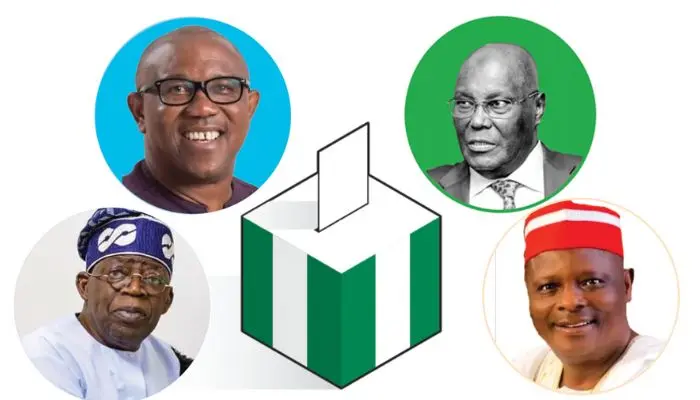
According to the International Growth Centre, a global research Centre, “Well-functioning democratic structures and strong political governance are central to economic development. However, a lack of information about elections in younger democracies can weaken the accountability of elected politicians and, consequently, decision-making.” Political information can be difficult to access in developing countries because of fledgling democratic structures and poor media penetration. Citizens may vote for candidates with little knowledge of their policy stances, qualifications, previous performance, or potential remit. The IGC research in Ghana and Sierra Leone revealed that “voters showed improved awareness of specific candidates, their policies, and general political knowledge for several weeks after viewing a debate.” Furthermore, “participants reported that debates helped inform their choices at the ballot box. They were more likely to vote for candidates who shared their policy priorities and for higher quality candidates.” Election debates are therefore very important for political accountability.
In Nigeria, the culture of election debate has been cultivated since 1999 and is being nurtured by the media and civil society organisations. The Nigeria Elections Debate Group is a coalition of broadcast organisations, civil society organisations, and professional groups who are committed to the deepening of democracy in the country and the entrenching of an enduring democratic culture through organised television debates since the return to democratic rule in 1999. Since then, the group has put together debates to enable the Nigerian electorate to have the opportunity to hear firsthand from aspiring presidential candidates, their intentions and aspirations through an equal opportunity platform. The NEDG has since transformed into a broad based non-partisan, non-profit making organisation with the primary mandate of organising and hosting live televised debates for all presidential, vice presidential, and governorship candidates in Nigeria.
Ahead of the 2023 general elections and even before the official flag-off of campaign period on September 28, 2022, many associations such as the Nigerian Bar Association and Institute of Chartered Accountants of Nigeria have used the opportunity of their annual conventions to invite presidential candidates to the forthcoming general elections to come and talk to their members and by extension, the Nigerian public.
Recall that at the NBA Annual General Meeting, which was held in Lagos in August 2022, the presidential candidates of the Peoples Democratic Party and the Labour Party, Atiku Abubakar and Peter Obi respectively, were present at the event. The vice-presidential candidate of the All Progressives Congress, Kashim Shettima, was also present to represent the presidential candidate of the party, Asiwaju Bola Tinubu.
While many of the participants hailed the Labour Party candidates during their appearance on August 22, the dressing of Shettima became a needless distraction and an issue, especially on social media with many knocking him for wearing ill-fitted suits and canvas shoes. Of course, this was robustly defended by the APC loyalists.
On October 12, 2022, the presidential candidate of the African Action Congress, Omoyele Sowore, and Obi attended the Institute of Chartered Accountants of Nigeria’s conference in Abuja. Other presidential candidates present were Prof Christopher Imulomen of the Accord Party and Prof Peter Umeadi of the All Progressives Grand Alliance. Tinubu and Atiku were absent. Although the running mate of the PDP and New Nigeria Peoples Party candidates represented their principals at the event.
The first in the series of political debates ahead of the 2023 general elections took place last Sunday, November 6, 2022. It was tagged, “Presidential Town Hall Meeting on Security and Economy.” It was organised by Arise News Channel, in collaboration with Centre for Development and Democracy and other partners, such as the Vanguard, Premium Times, Leadership, Daily Trust, and Nigeria Union of Journalists. At the meeting were Obi; NNPP presidential candidate, Rabiu Kwankwaso; PDP vice-presidential candidate, Ifeanyi Okowa, who stood in for Atiku; and the presidential candidate of the Peoples Redemption Party, Kola Abiola.
I have been interviewed on the outcome of the town hall meeting by no fewer than three media stations, both print and electronic. In fact, I was on Daily Politics with Idayat Hassan, the CDD Executive Director on Monday night on Trust TV to review the debate. Earlier, I had been interviewed by a THISDAY newspaper correspondent and was also on Citizen 93.7 FM Abuja to discuss the inaugural presidential debate. I’m amused by the intrigues and drama that played out during and after the programme. The unruly behaviour of a section of the participants who disrupted the take-off of the programme by over an hour by their shout of “no representation by proxy” is reprehensible. The altercation between Obi and Senator Dino Melaye was also uncalled for. However, it is totally not unexpected that such a high-profile event would take place without some issues.
Most unfortunate is the accusation levelled against the organisers for the replacement of the APC candidate with that of the PRP when the former could not attend or send a representative. The explanation that it was based on the availability of Kola Abiola, and the fact that many other candidates that were approached to take over Tinubu’s slot turned down the offer based on the shortness of time for preparations fell on deaf ears. Some of those who took to social media to call out the organisers wished they were the ones appointed to take Tinubu’s slot and not Abiola. What these critics failed to know is that the organisers reserve the right to invite people based on their discretion. Many have also queried why LP, NNPP, PDP and APC candidates were shortlisted to be the first batch of the candidates to be grilled and drilled at the town hall meeting. They chose to ignore the organiser’s claim that it was based on their online and offline survey conducted ahead of the town hall. Not even the assurances that all the 18 candidates would have equal opportunity to feature at the town hall meetings, albeit in batches, was able to placate the aggrieved.
Truth be told, those who pick holes in the organiser’s methodology and decisions should note that town hall meetings and debates are just a few of the opportunities available to them to sell their candidacy. They can organise rallies, get canvassers to work the phone for them, use billboards, organise road shows, and use political advertisements on radio, television, and social media to market themselves. It is not an aberration or anomaly to have dominant political parties in every democracy. The truth is Nigeria is a de jure multiparty state but de facto a two-party country i.e. APC and PDP. How many Nigerians know that though the Democratic and Republican parties are dominant in the United States, there are indeed 209 state-level ballot-qualified political party affiliates in the US as at December 2021? Likewise, despite the domination of the Conservative and Labour parties in the United Kingdom, how many people are aware that as at August 2, 2019, the Electoral Commission of the UK showed the number of registered political parties in Great Britain and Northern Ireland as 408?
I can safely predict that the next President of Nigeria shall come from any of these three presidential candidates: LP, APC, and PDP. The NNPP candidate will be a beautiful bride to be courted in the event that none of the earlier mentioned three wins on the first ballot. The possibility of a run-off in the 2023 presidential election is very high. This is why I have enjoined the Independent National Electoral Commission to embark on political education on how a winner emerges in an election, especially the presidential election as contained in section 134 of the 1999 Constitution. As for the APC presidential candidate who wished not to participate in any election debate, the electorate will have the final say. By the way, all organisers of election debates should engage sign language interpreters in order to ensure that the deaf is able to follow through with the proceedings.
– Twitter: @jideojong
You may like
-


This Sudan war is too senseless; time we ended it, By Tee Ngugi
-


Zambia asks EU to help strengthen its democratic initiatives ahead of 2026 elections
-


Air Peace, capitalism and national interest, By Dakuku Peterside
-


This is chaos, not governance, and we must stop it, By Tee Ngugi
-
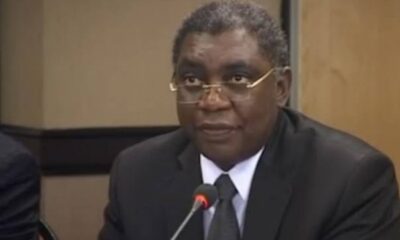

Zambian coalition challenges President Hichilema to test popularity with early election
-


Off we go again with public shows, humbug and clowning, By Jenerali Uliwengu
Strictly Personal
This Sudan war is too senseless; time we ended it, By Tee Ngugi
Published
6 days agoon
April 28, 2024
Why are the Sudanese Armed Forces (SAF) and the paramilitary Rapid Support Forces (RPF) engaged in a vicious struggle? It is not that they have ideological, religious or cultural differences.
Not that people should fight because of these kinds of differences, but we live in a world where social constructions often lead to war and genocide. It is not that either side is fighting to protect democracy. Both sides were instruments of the rapacious dictatorship of Omar el-Bashir, who was overthrown in 2019.
Both are linked to the massacres in Darfur during Bashir’s rule that led to his indictment by the International Criminal Court for crimes against humanity. They both stood by as ordinary, unarmed people took to the streets and forced the removal of the Bashir regime.
None of these entities now fighting to the last Sudanese citizen has any moral authority or constitutional legitimacy to claim power. They both should have been disbanded or fundamentally reformed after the ouster of Bashir.
The SAF and the RSF are fighting to take over power and resources and continue the repression and plunder of the regime they had supported for so long. And, as you can see from news broadcasts, they are both well-versed in violence and plunder.
Since the fighting began in 2023, both sides have been accused of massacres that have left more than 30,000 people dead. Their fighting has displaced close to 10 million people. Their scramble for power has created Sudan’s worst hunger crisis in decades. Millions of refugees have fled into Chad, Ethiopia and South Sudan.
The three countries are dubious places of refuge. Chad is a poor country because of misrule. It also experiences jihadist violence. Ethiopia is still simmering with tensions after a deadly inter-ethnic war.
And South Sudan has never recovered from a deadly ethnic competition for power and resources. African refugees fleeing to countries from which refugees recently fled or continue to flee sums up Africa’s unending crisis of governance.
Africa will continue to suffer these kinds of power struggles, state failure and breakdown of constitutional order until we take strengthening and depersonalising our institutions as a life and death issue. These institutions anchor constitutional order and democratic process.
Strong independent institutions would ensure the continuity of the constitutional order after the president leaves office. As it is, presidents systematically weaken institutions by putting sycophants and incompetent morons in charge. Thus when he leaves office by way of death, ouster or retirement, there is institutional collapse leading to chaos, power struggles and violence. The African Union pretends crises such as the one in Sudan are unfortunate abnormally. However, they are systemic and predictable. Corrupt dictatorships end in chaos and violence.
Tee Ngugi is a Nairobi-based political commentator.
Strictly Personal
Air Peace, capitalism and national interest, By Dakuku Peterside
Published
3 weeks agoon
April 16, 2024
Nigerian corporate influence and that of the West continue to collide. The rationale is straightforward: whereas corporate activity in Europe and America is part of their larger local and foreign policy engagement, privately owned enterprises in Nigeria or commercial interests are not part of Nigeria’s foreign policy ecosystem, neither is there a strong culture of government support for privately owned enterprises’ expansion locally and internationally.
The relationship between Nigerian businesses and foreign policy is important to the national interest. When backing domestic Nigerian companies to compete on a worldwide scale, the government should see it as a lever to drive foreign policy, and national strategic interest, promote trade, enhance national security considerations, and minimize distortion in the domestic market as the foreign airlines were doing, boost GDP, create employment opportunities, and optimize corporate returns for the firms.
Admitted nations do not always interfere directly in their companies’ business and commercial dealings, and there are always exceptions. I can cite two areas of exception: military sales by companies because of their strategic implications and are, therefore, part of foreign and diplomatic policy and processes. The second is where the products or routes of a company have implications for foreign policy. Air Peace falls into the second category in the Lagos – London route.
Two events demonstrate an emerging trend that, if not checked, will disincentivize Nigerian firms from competing in the global marketplace. There are other notable examples, but I am using these two examples because they are very recent and ongoing, and they are typological representations of the need for Nigerian government backing and support for local companies that are playing in a very competitive international market dominated by big foreign companies whose governments are using all forms of foreign policies and diplomacy to support and sustain.
The first is Air Peace. It is the only Nigerian-owned aviation company playing globally and checkmating the dominance of foreign airlines. The most recent advance is the commencement of flights on the Lagos – London route. In Nigeria, foreign airlines are well-established and accustomed to a lack of rivalry, yet a free-market economy depends on the existence of competition. Nigeria has significantly larger airline profits per passenger than other comparable African nations. Insufficient competition has resulted in high ticket costs and poor service quality. It is precisely this jinx that Air Peace is attempting to break.
On March 30, 2024, Air Peace reciprocated the lopsided Bilateral Air Service Agreement, BASA, between Nigeria and the United Kingdom when the local airline began direct flight operations from Lagos to Gatwick Airport in London. This elicited several reactions from foreign airlines backed by their various sovereigns because of their strategic interest. A critical response is the commencement of a price war. Before the Air Peace entry, the price of international flight tickets on the Lagos-London route had soared to as much as N3.5 million for the economy ticket. However, after Air Peace introduced a return economy class ticket priced at N1.2 million, foreign carriers like British Airways, Virgin Atlantic, and Qatar Airways reduced their fares significantly to remain competitive.
In a price war, there is little the government can do. In an open-market competitive situation such as this, our government must not act in a manner that suggests it is antagonistic to foreign players and competitors. There must be an appearance of a level playing field. However, government owes Air Peace protection against foreign competitors backed by their home governments. This is in the overall interest of the Nigerian consumer of goods and services. Competition history in the airspace works where the Consumer Protection Authority in the host country is active. This is almost absent in Nigeria and it is a reason why foreign airlines have been arbitrary in pricing their tickets. Nigerian consumers are often at the mercy of these foreign firms who lack any vista of patriotism and are more inclined to protect the national interest of their governments and countries.
It would not be too much to expect Nigerian companies playing globally to benefit from the protection of the Nigerian government to limit influence peddling by foreign-owned companies. The success of Air Peace should enable a more competitive and sustainable market, allowing domestic players to grow their network and propel Nigeria to the forefront of international aviation.
The second is Proforce, a Nigerian-owned military hardware manufacturing firm active in Rwanda, Chad, Mali, Ghana, Niger, Burkina Faso, and South Sudan. Despite the growing capacity of Proforce in military hardware manufacturing, Nigeria entered two lopsided arrangements with two UAE firms to supply military equipment worth billions of dollars , respectively. Both deals are backed by the UAE government but executed by UAE firms.
These deals on a more extensive web are not unconnected with UAE’s national strategic interest. In pursuit of its strategic national interest, India is pushing Indian firms to supply military equipment to Nigeria. The Nigerian defence equipment market has seen weaker indigenous competitors driven out due to the combination of local manufacturers’ lack of competitive capacity and government patronage of Asian, European, and US firms in the defence equipment manufacturing sector. This is a misnomer and needs to be corrected.
Not only should our government be the primary customer of this firm if its products meet international standards, but it should also support and protect it from the harsh competitive realities of a challenging but strategic market directly linked to our national military procurement ecosystem. The ability to produce military hardware locally is significant to our defence strategy.
This firm and similar companies playing in this strategic defence area must be considered strategic and have a considerable place in Nigeria’s foreign policy calculations. Protecting Nigeria’s interests is the primary reason for our engagement in global diplomacy. The government must deliberately balance national interest with capacity and competence in military hardware purchases. It will not be too much to ask these foreign firms to partner with local companies so we can embed the technology transfer advantages.
Our government must create an environment that enables our local companies to compete globally and ply their trades in various countries. It should be part of the government’s overall economic, strategic growth agenda to identify areas or sectors in which Nigerian companies have a competitive advantage, especially in the sub-region and across Africa and support the companies in these sectors to advance and grow to dominate in the African region with a view to competing globally. Government support in the form of incentives such as competitive grants ,tax credit for consumers ,low-interest capital, patronage, G2G business, operational support, and diplomatic lobbying, amongst others, will alter the competitive landscape. Governments and key government agencies in the west retain the services of lobbying firms in pursuit of its strategic interest.
Nigerian firms’ competitiveness on a global scale can only be enhanced by the support of the Nigerian government. Foreign policy interests should be a key driver of Nigerian trade agreements. How does the Nigerian government support private companies to grow and compete globally? Is it intentionally mapping out growth areas and creating opportunities for Nigerian firms to maximize their potential? Is the government at the domestic level removing bottlenecks and impediments to private company growth, allowing a level playing field for these companies to compete with international companies?
Why is the government patronising foreign firms against local firms if their products are of similar value? Why are Nigerian consumers left to the hands of international companies in some sectors without the government actively supporting the growth of local firms to compete in those sectors? These questions merit honest answers. Nigerian national interest must be the driving factor for our foreign policies, which must cover the private sector, just as is the case with most developed countries. The new global capitalism is not a product of accident or chance; the government has choreographed and shaped it by using foreign policies to support and protect local firms competing globally. Nigeria must learn to do the same to build a strong economy with more jobs.
EDITOR’S PICK
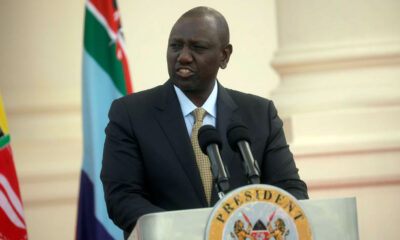

Kenya: President Ruto hints at ‘dire’ weather outlook as Cyclone Hidaya nears
President William Ruto has announced that the severe rains that have been plaguing Kenya for the past several weeks resulting...
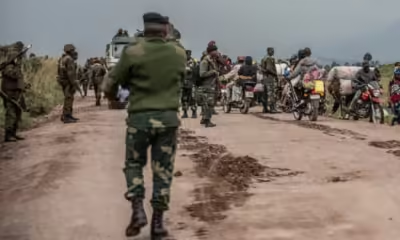

Again, Rwanda denies it attacked displaced persons in DR Congo
For the sixteenth time, Rwanda refuted US charges on Saturday that its troops attacked a camp for internally displaced persons...


Nigeria offers oil majors faster exit if …
Oil-rich West African country, Nigeria, has offered major oil companies, such as Exxon Mobil and Shell, that planned to leave...
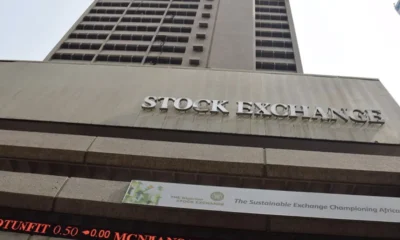

Nigeria’s Security Exchange chief to meet foreign, local crypto exchanges, others over crypto regulation
On Monday, local and international cryptocurrency exchanges will meet with Dr. Emomotimi Agama, the recently appointed Director General of the...
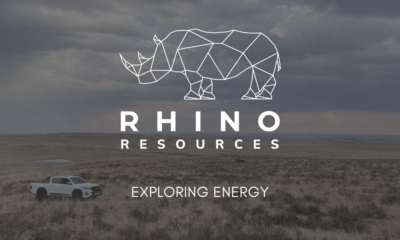

Rhino Resources, BP-Eni JV sign agreement for Namibia offshore licence
Rhino Resources Namibia and a BP-Eni joint venture have agreed to share a 42.5% stake in a block located in...
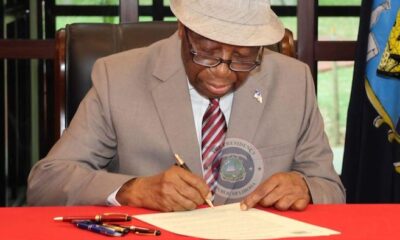

Liberia: President Boakai signs order to create war crimes court
To provide long-overdue justice to those who suffered grave injustices during the two civil wars that raged in Liberia, President...
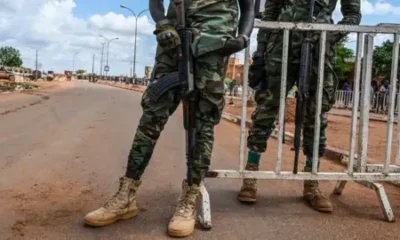

US official accuses Russian troops of entering base housing US military in Niger
According to a senior United States defence official quoted by Reuters, Russian military soldiers have entered an air base in...
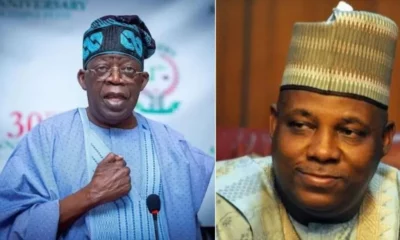

Nigeria’s presidency insists reforms prevented economic collapse
Nigeria’s presidency on Thursday reiterated that the current administration’s economic reforms of the past one year “saved the life of...
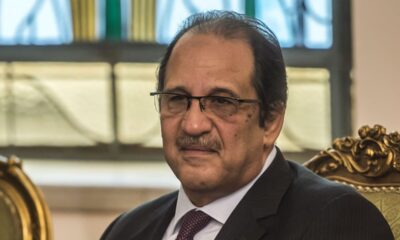

Hamas leader in talks for Gaza ceasefire with Egypt, Qatar
Ismail Haniyeh, the leader of Hamas, spoke with Abbas Kamel, the head of Egypt’s security services, and Mohammed bin Abdulrahman...
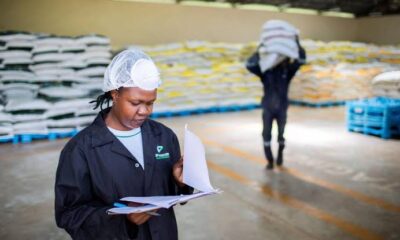

Kenya agri-tech startup iProcure placed under administration over unpaid debts
Kenyan agri-tech startup, iProcure, has been placed under administration due to its inability to clear up undisclosed debts. The advisory...
Trending
-
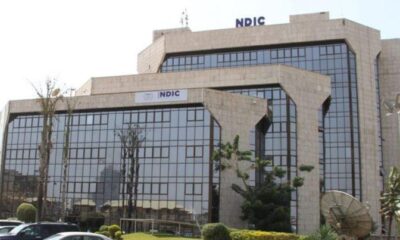
 VenturesNow1 day ago
VenturesNow1 day agoNigeria’s Insurance Corporation raises maximum deposit coverage from N500k to N5m
-

 Sports1 day ago
Sports1 day agoLiverpool legend Graham Souness wants ‘selfish’ Salah to leave club
-
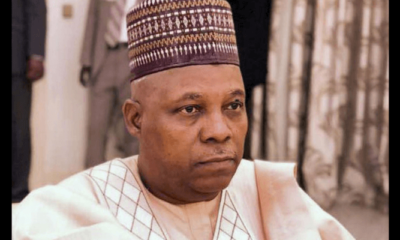
 Metro2 days ago
Metro2 days agoNigeria’s economy will witness positive changes after painful sacrifice— VP Shettima
-
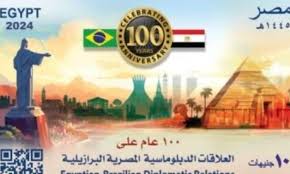
 Culture1 day ago
Culture1 day agoEgypt unveils stamp to mark 100th anniversary of relationship with Brazil


